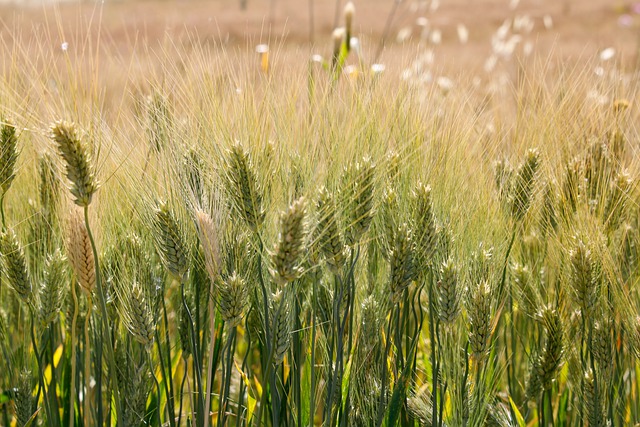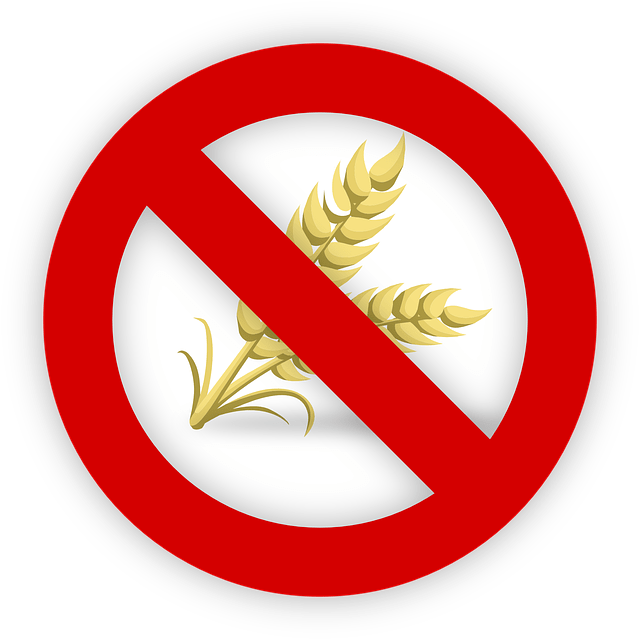Gluten is a protein, it is found in particular wheat and multiple cereals such as barley and rye. As a result, gluten is also present in a wide range of food products that include a dough (eg bread, pizzas etc …) or flour. Gluten offers a variety of functional and practical properties (eg, malleability and good performance).
Thus, “gluten-free” means practically having a gluten-free diet, that is, you avoid ALL foods that may contain gluten (such as bread and pasta). A gluten-free diet is often adopted by people who have difficulty digesting this protein, including celiacs or those suffering from intolerance or being allergic to wheat.
Note that wheat is an ingredient very strongly present in the diet of Westerners, and is one of the most consumed proteins. This often makes it rather difficult to completely eliminate her diet. However, choosing an Indian gluten-free diet can open up a multitude of health benefits.
Why stop eating Gluten

When it comes to this reflection, you must first ask yourself this question: “Do I have a real NEED to remove gluten? ” Thus, people with Celiac disease or allergies to wheat must respond positively and of course benefit from a gluten-free diet.
Celiac disease is a serious digestive condition where the body reacts very negatively to gluten. Which causes – among other things – upset stomach, bloating and sometimes weight gain, etc.
It is estimated that more than 2.5 million people have celiac disease. But most of them are not diagnosed because they have been asymptomatic for years! So the many symptoms of this disease can be confused with other medical problems …
If you think you have celiac disease , the most common symptoms include: Diarrhea, constipation, abdominal pain, bloating, anemia and general tiredness on a daily basis. Therefore, if you accumulate many of these symptoms and think you are celiac / gluten intolerant, it is better to consult a doctor rather than trying to manage it alone and quickly adopt a gluten-free diet.
What are the benefits of a gluten-free diet?
When it comes to the benefits of this type of diet, you must first and foremost ensure that this diet is 100% necessary for you.
For example, people with celiac disease will benefit greatly and have a real need ( Kurppa, K et al ). If you are gluten intolerant, its eradication of your diet may offer relief, see a disappearance, of the many unwanted symptoms mentioned above. In addition, it can help you recharge your energy and make you forget the majority of your gastrointestinal problems.
Study:
In a study published in 2014, an attempt was made to assess the quality of life of people diagnosed with celiac disease and / or presenting the same symptoms, before and after following a gluten-free diet for one full year. Thus, it appears that at the beginning of this study, the quality of life of the patients was deplorable, with multiple gastrointestinal symptoms.
Fortunately, after a year of gluten-free diet, the various gastrointestinal symptoms have been improved and their conditions improved. It has been concluded that a gluten-free diet can significantly improve the quality of life of people diagnosed with celiac disease and / or diagnosed with the same symptoms as celiac disease. However, if you do not have gluten intolerance, removing it entirely from your diet may not offer any real benefit.
Hazards of Gluten-free diet
For many, reducing or eliminating it can even lead to weight gain, since most alternatives to foods containing gluten are higher in fat. In addition, the gluten-free diet can lead to deficiencies in essential elements that you will have to fill ( Vici, G et al) .
The most common deficiencies in the gluten-free diet are:
- Vitamin D
- Vitamin B12
- folate
- Iron
- Zinc
- Magnesium
- Calcium
You can either anticipate and look for what foods would help you fill this gap or you can use our vitamin supplements
Vitamins and Minerals
Of course , some lose weight, but this is mainly due to the fact that becoming “gluten free” offers you a lesser choice of food, and therefore, reduce your daily caloric intake.
However, whole grains are part of a healthy and balanced diet, and by eliminating gluten if you do not have the real need, you lose many nutritional benefits from this type of food (vitamin B, minerals etc .)
Should we Skip to gluten-free?
To get started, you need to focus on the maximum consumption of raw / unprocessed foods such as fruits, vegetables, chicken, fish and lean meats (all without gluten). This is a good way to rule out all sources of gluten in your diet.
Let’s add that in everyday life, going to the restaurant or eating out can quickly become complicated when you follow a gluten-free diet … so it would be more thoughtful to contact the establishments in advance to find out if the menu offers gluten-free options.
In addition, do not forget to always inform your server of your sensitivity to gluten, or your various allergies, they are used to it and will be happy to help you.
Beware of hidden gluten!
Eating industrial and refined foods is not advisable because gluten can be disguised and not explicitly listed as an ingredient. However, nowadays most stores have a section dedicated entirely to gluten-free products.

Products that usually contain gluten:
- The bread
- Pasta
- Flour in general
- Matzo
- Pita bread
- Couscous
- Cakes
- Muffins
- The biscuits
- Pastries and pies
- Wheat
- Barley
- The sound
- Semolina
Oatmeal (which contains a protein that is very similar to gluten but not exactly the same) It should also be noted that many oat and field products will be cross-contaminated, so if you decide to buy oats, be sure to buy from a certified gluten-free brand).
What are gluten-free foods?
Excluding gluten from its animation means excluding certain foods from its diet … But fortunately, but there are still many gluten-free alternatives for foods such as cereals and baked goods, as well as many fresh foods that can replace those containing gluten!
- Fruits: Apples, oranges, grapes, bananas, grapefruit, pear … etc.
- The vegetables: Potatoes, corn, broccoli, cauliflower, zucchini, cabbage, lettuce, etc.
- Sauces and spices: Tomato sauce, mayonnaise, salt and pepper – beware of soy sauce and salad dressings in general that may contain gluten!
- Unprocessed, fresh, raw meat: Chicken, beef, pork, fish, eggs, etc.
- Pay attention to sausages, cold cuts and all seasoned / prepared meat as they may contain gluten.
- Dairy products: Milk, cheeses, yogurt, butter, cottage cheese …
Pay attention to processed cheeses and blue-veined cheese that may contain gluten contains this bread pan. Also, always check the labels on yogurts, making sure there are no added fiber or cereals.
Accompaniments: Rice, potatoes, beans, Quinoa … and avoid instant mashing!
Walnuts and Spreads: Peanut butter, almond butter, pistachios, cashews, peanuts, peanuts … and avoid all roasted, salted and flavored nuts …
Gluten-free recipe ideas: It is not always easy to keep a gluten-free diet, especially since a lot of recipes contain gluten. Here is a list just for you!
- Cookies with peanut butter without flour
- Three gluten-free chocolate cookies
- Pecan cookies
- Lemon and poppy cake
- Gluten free homemade bread with squash
- Quinoa recipes for lunch
- A delight!
Conclusion
People allergic to wheat, intolerant to gluten or suffering from celiac disease, are the only individuals who will benefit the most from a gluten suppression of their diet.
However, if you have trouble tolerating gluten, it’s important to remember that removing a whole range of foods from your diet will not make you lose weight or get in shape, better than a diet. healthy and balanced with exercise.
ALSO READ

